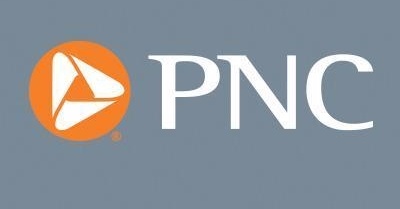
- The FOMC said in its September 22 policy statement that it could reduce its purchases of long-term assets “soon.” This implies an announcement is likely to come at the FOMC’s next meeting in early November, with a reduction in purchases starting in December.
- The FOMC remains positive on the economic outlook, and still thinks that the recent run-up in inflation is largely temporary.
- The FOMC expects the conditions it has set for an increase in the fed funds rate—maximum employment and average inflation of 2%—are likely to be achieved in 2023.
The Federal Open Market Committee indicated that it is likely to announce a reduction in its purchases of long-term assets at its next meeting, in early November. The committee’s monetary policy statement this afternoon said that “a moderation in the pace of asset purchases may soon be warranted.” This is based on the FOMC’s view that the economy has made progress toward the committee’s goals of maximum employment and price stability, and that “if that progress continues broadly as expected,” the economy is likely to soon reach the threshold the committee has set of “substantial further progress” toward these goals.
Currently, the central bank is buying $80 billion per month of long-term Treasurys and $40 billion per month of mortgage-backed securities. Unless the September jobs report (to be released October 8) is much weaker than expected, say with job growth of 225,000 or less, the FOMC is likely to announce on November 3 that it will reduce its asset purchases, probably starting at the beginning of December. That would set the Fed up to gradually reduce those asset purchases down to zero by late 2022.
The statement was generally positive on the economic outlook. The FOMC noted that the economy has continued to strengthen and that the sectors hit hardest by the pandemic are improving. However, the statement also noted that “the rise in COVD-19 cases has slowed their recovery.” Once again the statement noted that the strength of the recovery will depend on the course of the pandemic, It also said that “progress on vaccinations will likely continue to reduce the effects of the public health crisis on the economy, but risks to the economic outlook remain.”
The statement said that inflation remains “elevated, largely reflecting transitory factors.” That is, temporary disruptions to supply and demand coming out of the pandemic have caused higher prices for some goods and services, but the FOMC thinks that these factors will fade in the months ahead as the economy continues to normalize.
The FOMC has said repeatedly that it will not raise the federal funds rate, the Fed’s key short-term policy rate, until the economy is at “maximum employment” and inflation is “moderately above 2% for some time so that inflation averages 2% over time.”
The statement was approved unanimously.
This FOMC meeting also include the release of the Summary of Economic Projections, or “dot plot.” The median forecast for GDP growth over the next few years was revised somewhat lower, compared to the previous projections from June, reflecting ongoing supply-chain disruptions and the negative impact of the Delta variant. But FOMC participants still expect GDP growth over the next few years to be well above the economy’s long-run average. The median forecast for the unemployment rate at the end of 2021 was revised somewhat higher from June to 4.8%, reflecting current labor market conditions, but was unchanged for 2022 and 2023 (at 3.8% and 3.5%, respectively). The near-term inflation forecast over the next few years was revised somewhat higher, in part reflecting current elevated inflation, but the forecast is still consistent with the FOMC’s target of average inflation of 2% over the long run.
There was a notable change to the median forecast for the fed funds. FOMC participants expect the fed funds rate to be around 1% at the end of 2023, up from 0.6% in the June projection. This would indicate no increase in the fed funds rate in 2022, but multiple fed funds rate increases in 2023. This is consistent with PNC’s forecast for the next increase in the fed funds rate to come in June 2023. The median FOMC participant expects the fed funds rate to end 1.8% in 2024, with a long-run rate of 2.5% (unchanged from June).
The FOMC is alerting financial markets that it expects to announce a reduction in the central bank’s purchases of long-term assets at its next meeting, in early November. These purchases are designed to put downward pressure on long-term interest rates, supporting consumer and business borrowing and economic growth. The Fed will still be buying these assets at the end of the year, just not as many, and so monetary policy will still be strongly supportive of economic growth, just not quite as strongly. PNC expects the FOMC to gradually reduce these purchases over the course of the following year. Once the FOMC wraps up those purchases, it will prepare financial markets for an increase in the fed funds rate, likely to come in June 2023.
The financial market response to the FOMC statement was positive. Stock prices rose somewhat on the release. The interest rate on the 10-year Treasury fell by about 2 basis points to 1.30%. The dollar weakened against a basket of currencies, and the price of a barrel of West Texas Intermediate crude oil was little changed at around $72.
The PNC Financial Services Group, Inc. is one of the largest diversified financial services institutions in the United States, organized around its customers and communities for strong relationships and local delivery of retail and business banking including a full range of lending products; specialized services for corporations and government entities, including corporate banking, real estate finance and asset-based lending; wealth management and asset management. For information about PNC, visit www.pnc.com.













